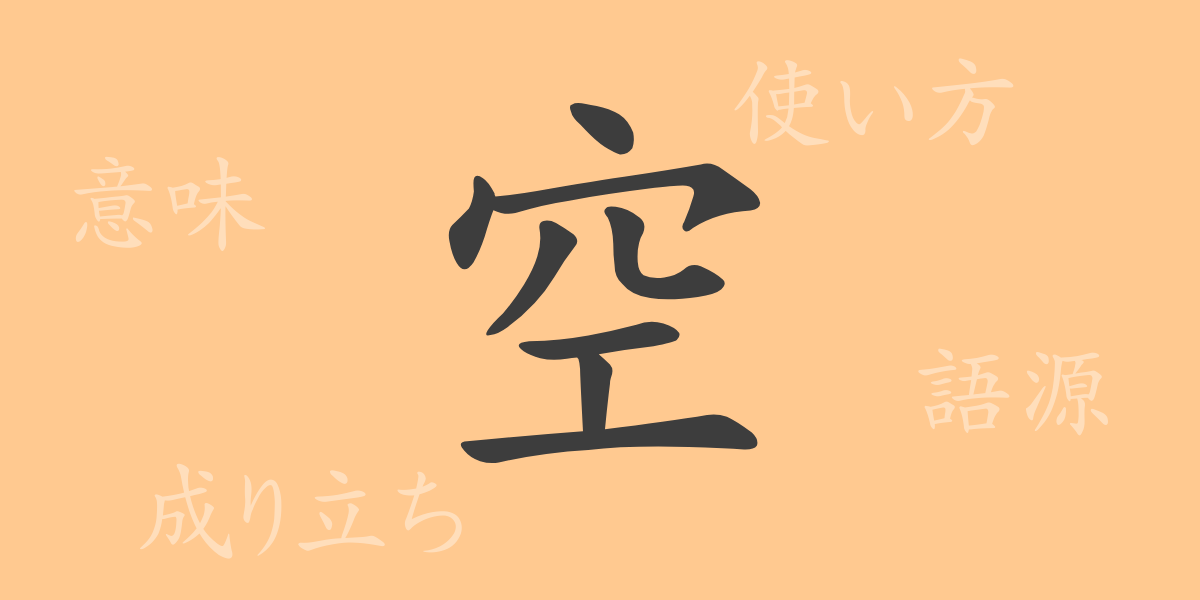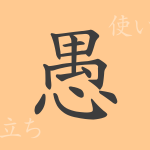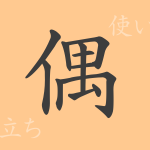When you look up at the sky, you see endless possibilities. The kanji “空(そら)” has captured people’s hearts and has been deeply ingrained in culture and language since ancient times. This article delves into the allure of “空(そら),” a common kanji in Japanese, exploring its origins, modern usage, and related idioms and proverbs, unveiling its rich world of expression.
Origin of 空(そら) (Etymology)
The kanji “空(そら)” has its roots in ancient Chinese “oracle bone script.” Initially, it was a pictogram representing a “hollow state,” and over time, it came to signify “sky” and “emptiness,” referring to unseen or nonexistent concepts. In Japan, within a culture that values harmony with nature, “空(そら)” has appeared in various linguistic forms since ancient times.
Meaning and Usage of 空(そら)
In modern Japanese, “空(そら)” primarily means “sky” or “emptiness.” It is also used to express abstract concepts or feelings, as seen in words like “空想(くうそう)” (fantasy) and “空腹(くうふく)” (hunger). Additionally, phrases like “空回り(からまわり)” (going around in circles) describe situations where things do not go as planned.
Readings, Stroke Count, and Radical of 空(そら)
The kanji “空(そら)” has various readings in Japanese.
- Readings: On’yomi (Chinese reading) – クウ(kuu); Kun’yomi (Japanese reading) – そら(sora), あく(aku), あける(akeru), から(kara)
- Stroke count: 8 strokes
- Radical: 穴部(けつぶ) (cave radical)
Idioms, Phrases, and Proverbs Using 空(そら)
There are many idioms, phrases, and proverbs that include “空(そら),” each reflecting the richness of the Japanese language. For instance, “空手(からて)” means “empty hand” and refers to the martial art, “空想(くうそう)” means to dream of something unreal, “空元気(からげんき)” describes putting on a brave front when one is not actually feeling strong, and “空振り(からぶり)” refers to missing a ball in baseball, metaphorically meaning to fail in accomplishing something.
Conclusion on 空(そら)
The kanji “空(そら)” goes beyond being a mere character; it reflects the Japanese people’s inner landscape and philosophy. When we gaze at the sky or feel inner emptiness, we realize that through this kanji, we are part of nature and the universe. We hope this article has helped you appreciate the multifaceted charm of the common kanji “空(そら).”

























